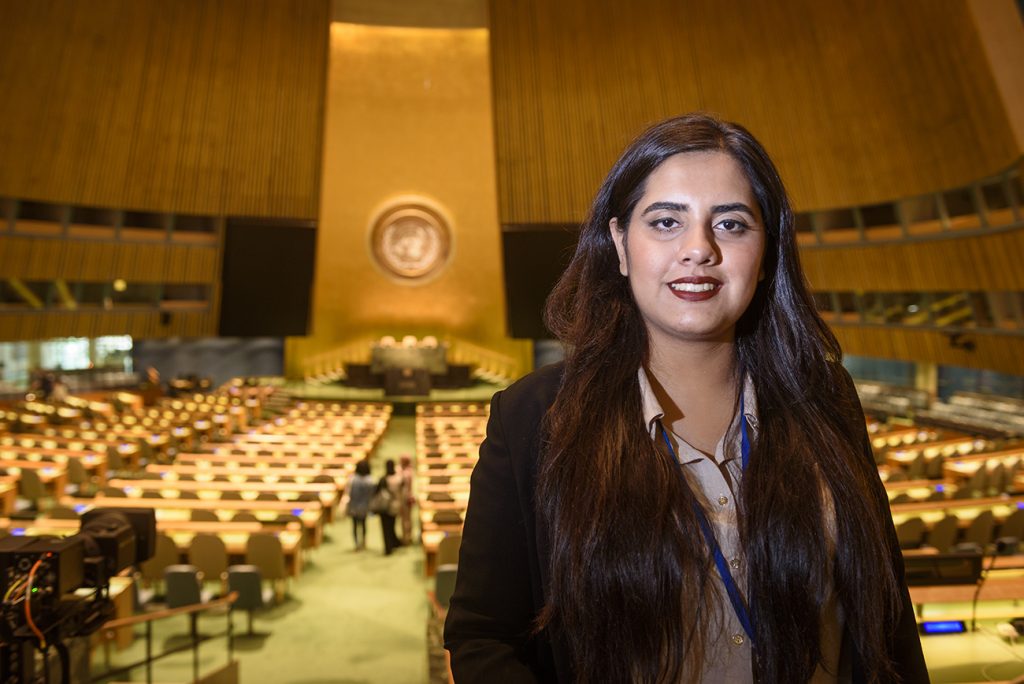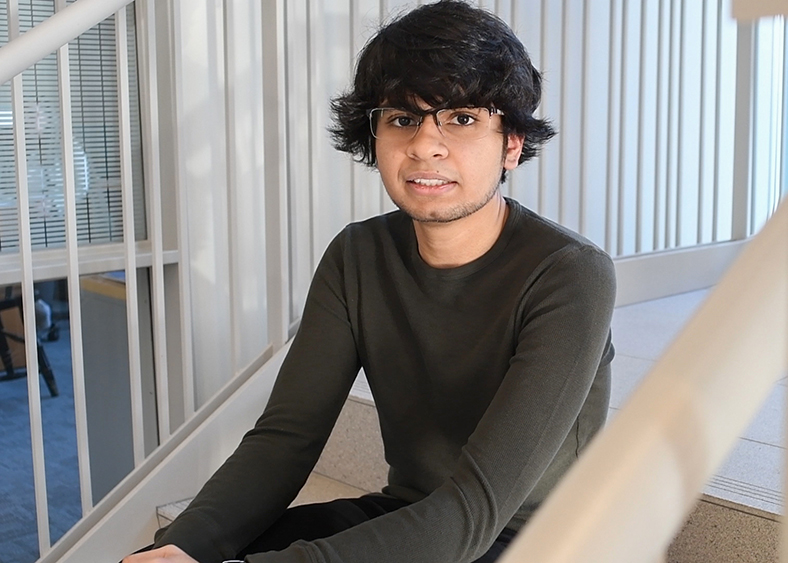Davis Projects for Peace award recipients bridge a gap between India and Pakistan

Maintaining peace between India and Pakistan, two countries with a 72-year-old history of mutual hostility, continues to be a daunting task. But thanks to a $10,000 grant from Davis Projects for Peace, Clark University students Maha Akbar ’20 from Pakistan and Rohan Roger ’19 from India implemented a way to help students in their home countries confront a common enemy to peace both within and between countries: sexual harassment and assault.
Akbar and Roger, like all Clark University students, were required to complete two online classes dealing with the subjects of consent and sexual violence. The two students, both who had served as Consent Advocates at Clark, knew that such topics are frequently taboo and rarely addressed in schools in India and Pakistan, and that there is little or no understanding of the issues surrounding consent.

Inspired by what they’d learned in the Clark classes, Akbar and Roger created a workshop called Consent Across Borders for two high schools in New Delhi, India, and two in Islamabad, Pakistan. As they wrote in their final grant report, their goal was to “empower students by helping them understand the concepts of consent, teaching them how to be an active bystander, shatter victim-blaming, and challenge the taboo surrounding consensual sexual relations and mental health issues.”
The team also hoped that by addressing problems relating to sexual violence and consent common to both countries, Indians and Pakistanis would see they are not so different.
To obtain official approval for the workshops and identify pilot schools, the team sought the advice of staff at the Directorate of Education, New Delhi, and the Higher Education Department of the Government of The Punjab, Islamabad. Akbar (in India) and Roger (in Pakistan) then trained teachers to conduct the workshops and partnered with local law enforcement as well as the Medical Council of India and the Pakistan Medical Commission .
The pilot schools were a mixture of public and private, single and mixed gender, and included students from a range of socioeconomic backgrounds. While all students spoke English, workshops were sometimes conducted in participants’ native languages to help them better grasp unfamiliar concepts.
Despite some initial logistical challenges, Akbar described the project as having gone smoothly. And by checking in with each other occasionally, she and Roger were able to discuss their progress and share ideas.
“I think one of the most powerful parts of the process was just sharing what people on the other side of the border were doing and how all students had the same experience. Seeing students react to it was fascinating,” says Akbar.
“The general feedback was very positive. A lot of girls came up to us saying, ‘We really liked it, this is something we’d never talked to people about before. We learned a lot.’
“As a Pakistani woman, it was very powerful to have open, candid conversations with students regarding consent. I am grateful to Davis Projects for Peace for my opportunity to help Pakistani girls realize their agency over their own bodies. Education can truly fill a desperate void in action and galvanize cultural shifts in attitudes towards consent.”
During her time at Clark, Akbar, a political science major, has spent two summers working at the Permanent Mission of Pakistan to the United Nations. She also received a Harrington Public Affairs Fellowship and a Barth Summer Internship Award. During her year abroad at the London School of Economics, she was a member of their Model UN team.
Roger, who majored in physics, is a research and development consultant intern with the Embassy of India in Washington, D.C. Among other activities while Clark he served as treasurer of the Student Council, student trustee representative, and chairman of his startup, Extraminds.
Davis Projects for Peace supports motivated youth who want to create and test their own ideas for building peace. All undergraduates at the 91 American colleges and universities who are partners in the Davis United World College Scholars Program are invited to compete for these grants. Clark has been well represented over the years, with students embarking on projects that have ranged from empowering young students in Ghana to mitigating conflicts between farmers and leopards in Sri Lanka.


